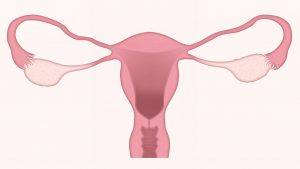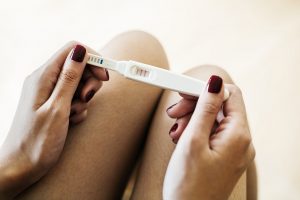Womens Hormones & The Menstrual Cycle

Womens Hormones & The Menstrual Cycle
Womens hormones play an important role throughout the life stages from puberty to menopause. There are many different hormones, all essential for good health. Changes in mood, along with symptoms of pain and discomfort associated with menstruation are accepted as “just a normal part of being a woman”. Even though they are considered common, if and when symptoms occur, they should be viewed as a system “out of balance”. These symptoms do not need to be endured, instead addressed and resolved by finding the underlying causes of imbalance.

What is a Healthy Menstrual Cycle?
The menstrual cycle is the term used to describe the natural hormonal and physical changes that occur in order to prepare healthy eggs (ova) within the ovaries and develop the lining of a woman’s uterus in preparation for pregnancy.
The average menstrual cycle occurs every 28-32 days, with day one of your menstrual cycle considered to be the first day of established bleeding. The timing of a healthy cycle is dependent on three important events:
The Follicular Phase – the first phase of your cycle during which time follicles (sacs that contain an egg) in the ovary begins to mature. This phase typically lasts from day 1 to 14
Ovulation – occurs once the dominant follicle has reached maturity in the ovary, following which time the egg is released and enters the Fallopian tube ready to travel to the uterus. This ideally occurs between days 13, 14 and 15.
The Luteal Phase – the final stage of your cycle during which time your uterus lining becomes thicker in preparation for a fertilised egg. If the egg is not fertilised, the uterus lining breaks down, resulting in menstruation. The phase occurs from days 16 to 28. The cycle then begins again.

The Reproductive Hormones
Womens hormones are substances produced by your body that stimulate a specific response from cells and/or tissues. Your menstrual cycle is controlled by a complex interplay between several different hormones including:
Follicular Stimulating Hormone (FSH) – Essential for puberty and ovarian function. FSH is responsible for stimulating follicular growth and maturation prior to the release of an egg during ovulation. It also stimulates the secretion of oestrogen. FSH is higher in the first half of your cycle and peak just prior to ovulation (mid-cycle).
Oestrogen – During your cycle, oestrogen is secreted by your ovaries and performs four main functions:
- Stops the production of FSH so only one egg matures, ready for ovulation.
- Stimulates the release of luteinising hormone (LH).
- Stimulates fertile (cervical) mucus which is a creamy, wet and slippery kind of discharge that helps sperm get to the fallopian tubes within minutes, and
- Promotes the thickening of the uterine lining in preperation for a fertilised egg.
Oestrogen levels are higher in the first half of your cycle, with a sharp increase (approximately between days 12 – 14) causing an increase in LH. It is the spike in LH that triggers ovulation to occur.
In addition, oestrogen has many benefits for bones, muscles, brain, heart, sleep, skin and metabolism especially blood glucose regulation.
Luteinising Hormone (LH) – Spikes mid-cycle in response to oestrogen, triggering ovulation and the development of an ovarian structure called the corpus luteum, which is essential for another hormone – progesterone.
Progesterone – Secreted initially from the corpus luteum, followed by the placenta (should pregnancy occur). Healthy progesterone levels are responsible for thickening the lining of your uterus and for maintaining pregnancy, with progesterone levels being highest in the second half of your cycle. If no pregnancy occurs, progesterone secretion decreases, stimulating your uterus to contract and shed its lining, causing menstruation.
Progesterone has other benefits including reducing inflammation, building muscle, promoting sleep, protecting against heart disease, and calms the nervous system making it easier to cope with stress.
The Menstrual Cycle throughout different Life Stages
As a woman progresses through life, her menstrual cycle will typically change in response to changing levels of reproductive hormones. These changes can be divided into four stages:
The First Period (menarche) – Likely starts around the age of 12, with most girls started to menstruate somewhere between the ages of 10-15. during the first few years, your period may be irregular or heavy as your body adjusts to normal hormone fluctuations that are commonly experienced at that time.
Reproductive Years – As you reach reproductive age the timing of ovulation and menstruation should be fairly regular.

Perimenopause – Means “around menopause” and refers to the 2 to 12 year period prior to menopause occurring. This is a time of fluctuating oestrogen levels, where your period begins to change. For example; your period may become shorter or longer, heavier or lighter. You will make more oestrogen than before and less and less progesterone. Though some women transition to menopause smoothly, it is not uncommon for many women to experience a wide range of symptoms and menstrual disturbances during this time, including hot flushes, sleep disruption and night sweats.
Menopause – The normal age range for menopause is between 45 to 55 years of age, with the average being 50. This is a time of low oestrogen when symptoms are likely to reduce. You have officially entered menopause when you have not had a period for one year.

Common Female Hormone Issues
In the next blog we will take a look at common female hormone issues such as pre-menstrual syndrome (PMS), endometriosis, painful periods and Polycystic ovarian syndrome (PCOS). In addition we will investigate factors that can impact healthy hormone balance.

Cindi Young is a leading Gold Coast Naturopath in Australia. With a special interest in womens hormones, endocrine function; thyroid, adrenal and weight management. She uses and recommends a ketogenic diet to assist with weight management and hormone balance.
Cindi Young is available for naturopath consultations at The Cycle of Life in Robina, Gold Coast. She is also available for online and phone consultations Australia wide. Cindi regularly runs workshops in her Gold Coast clinic as well as regular webinars.
Do you need help balancing your hormones? Book your appointment with Cindi today.
